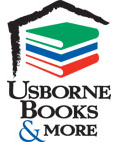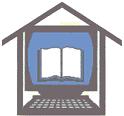Knowledge House Newsletter

Homeschool Information... Ideas... and Inspiration |
|
|
Dear Readers,
The beautiful fall weather has arrived here in the desert, and this month our family has an extra special reason to celebrate. After being let go from his job on October 31 of last year, my husband finally found a new position! He was hoping to get a call on his birthday but he didn't... although the call did come in time for our anniversary so that was a joyous occasion. Whew, he sure beat his old record for the most months out of work. Ironically, the company that hired him was the very first place he had contacted nearly a year ago, but they weren't hiring at that time. So it pays not to give up! Even though it was a long time, the days went by quickly and now I miss having him home. ;)
You know how we tend to take things for granted and don't really appreciate them until they're gone? Well, now that our house is twenty years old it seems like everything is self-destructing. In the latest incident of this type, we'd been having trouble with fluctuating water pressure in our kitchen faucet. Then suddenly one day no water came out at all! Everything in our house is a bit unusual and hard to find, so we had to special order a new faucet. Of course, that particular one was backordered. So I had to go three weeks without being able to use the kitchen sink. I'd either have to carry water from the bathroom sink, or go outside and use the hose. (Our bathroom faucet is broken, too, and doesn't have hot water, plus the sink is too small. So one day I was even soaking dirty dishes in the bathtub!) When we finally installed the new faucet, it was such a luxurious feeling to actually have running water in the kitchen. I imagine that must be what it felt like back in the old days when households got indoor plumbing for the first time!
|
|
|
Freebie(s) of the Month*
Do your kids have trouble thinking of the right words to say when writing? Transitional words are particularly important for bridging shifts of thought, and helping to make sentences and paragraphs flow together so they don't sound choppy. I've put together a printable list of Transition Words arranged by category (4 pages total):
Also, here is my "Costumes for all Seasons" booklet: http://www.knowledgehouse.info/Free Booklet 4.pdf
(*Requires Adobe Reader: click here for free download.)
|
|
|
Featured Article
Great Fantasy Stories
Great Books Week is celebrated annually the first full week in October. Teen Read Week 2009 will be held from October 18-24. This year’s theme is “Read Beyond Reality,” which encourages teens to read something out of this world, just for the fun of it. From traditional fairy tales to modern classics, lots of great literature is based on themes of science fiction, fantasy, and alternate realities. The following titles are recommended for readers of all ages who enjoy fantasy/sci fi books:
Children
Young Adult
|
|
|
My Affiliates




|
|
|
Quote of the Month
“Children should be educated and instructed in the principles of freedom.” ~John Adams |
|
|
Famous Homeschoolers
John Adams learned how to read at home, and then he took lessons from a neighbor woman. At the age of fourteen, Adams prepared for college with a private tutor. Later, he and his wife Abigail (who was homeschooled exclusively) taught their own children, the oldest of whom would later become a U.S. President like his father. Click on the following links to read biographies of John Adams, Abigail Adams, and John Quincy:
|
|
|
|
Verse of the Month
“And though I have...all knowledge...and have not charity, I am nothing.” ~I Corinthians 13:2 |
|
Reading Between the Lines
Noah Webster's 1828 American Dictionary of the English Language
Think about it... a dictionary is a tool that shapes one's reasoning and knowledge as new words are learned. The worldview of a dictionary's authors are reflected in their definitions. Does your dictionary reinforce and verify Biblical truths for your family, or does it introduce conflicting values?
Webster's 1821 American Dictionary of the English Language contains the worldview and vocabulary of the founding generation. This generation practiced Biblical reasoning, and they prized Christian character and virtue above all else.
Noah Webster was a Christian whose Biblical knowledge and research is clearly seen in his definitions. He is quoted as saying "Education is useless without the Bible" and is considered to be the "Father of American Christian Education."
Noah Webster laid the foundation for the American usage of English words. He established a system of rules to govern spelling, grammar, and reading. He researched every word in their original languages to provide the root meanings. This master linguist understood the power of words, their definitions, and the need for precise word usage.
Furthermore, Noah Webster defined each word according to its meanings and usage in the Bible. Webster's 1828 Dictionary contains the greatest number of Biblical definitions given in any reference volume. When words are defined in light of how they are used in the Bible, the Biblical principles of the subject are emphasized. Thus, a Biblical foundation of logical thinking and just reasoning is established.
Modern dictionaries tend to reflect current cultural corruptions, political correctness, and erosion of vocabulary. Newer dictionaries are necessary, of course, for looking up definitions of things that were not around during Noah Webster's time. But for such important words as education, marriage, sin, law, government, etc. turn to Webster's 1828 Dictionary first.
Click here to read my complete article including examples of definitions.
|
|
|
|
Learning Links
|
|
My Products

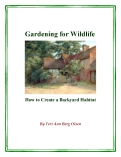
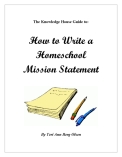

 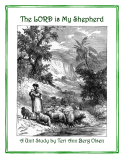
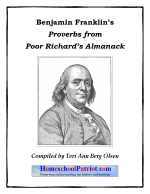
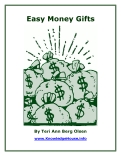

|
|
|
My Websites
|
A Note From Teri...
Make a Difference Day, the largest national day of helping others, is held every year on the 4th Saturday of October. Research shows that volunteering not only helps others — it actually improves the emotional and physical well being of the volunteers! People who have spent time volunteering report that they receive much more satisfaction and joy out of the experience than they ever expend in inconvenience or effort. Volunteering teaches values like kindness, empathy, and respect while breaking down generational gaps and other barriers of misunderstanding. Beyond those more lofty benefits, volunteering can be a good way to meet people and develop friendships as well as providing insight into one’s own problems. It is something that everyone from students to retirees can do in their spare time. Volunteer work may be used to learn skills and gain experience to put on a resume. Finally, volunteering often provides networking opportunities and is a means to create new contacts that may help in your business or career. Volunteering is fun — and it changes the lives of all those involved. Do you volunteer at your church, in your homeschool group, or out in the community? YOU CAN make a difference!
|
|
Copyright © 2009 by Teri Ann Berg Olsen, www.knowledgehouse.info. To subscribe to this free e-newsletter, simply send a blank e-mail to
and then follow the instructions in the confirmation e-mail that you will receive, or sign up on the web at http://groups.yahoo.com/group/KnowledgeHouse. To unsubscribe, send a blank e-mail to . Questions? E-mail . |
|


